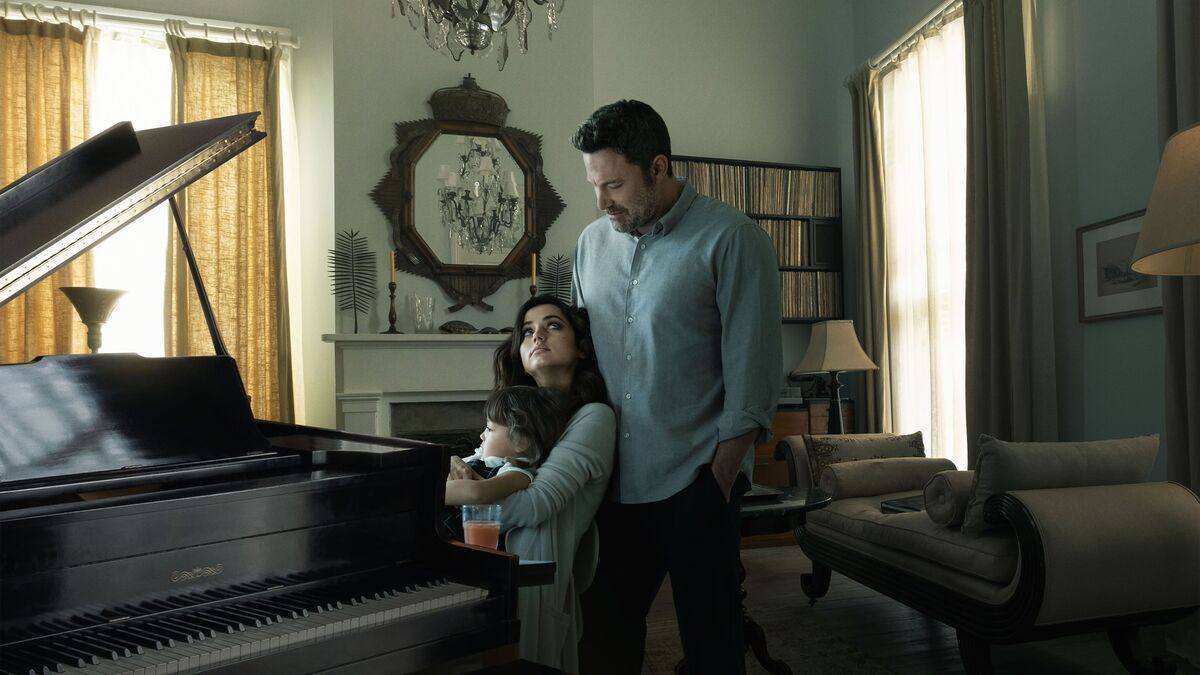Deep Water (2022)

Deep Water (2022), directed by Adrian Lyne and based on the 1957 novel by Patricia Highsmith, is a psychological thriller that dives deep into the complexities of love, obsession, and manipulation. Known for his mastery of creating intense and disturbing psychological narratives, Lyne takes Highsmith’s novel and brings it to the screen with a modern edge. With a screenplay by Zach Helm and Sam Levinson, the film stars Ben Affleck and Ana de Armas in a gripping portrayal of a marriage fraught with secrets, jealousy, and dangerous desires. Set against the backdrop of a wealthy, picturesque suburban world, Deep Water explores the dark undercurrents of a relationship that seems perfect on the outside but is anything but.
The plot revolves around Vic (Ben Affleck) and Melinda (Ana de Armas), a married couple living in a luxurious home in New Orleans. On the surface, their relationship appears idyllic, but beneath it lies a simmering tension. Melinda, an alluring and manipulative woman, is unfaithful to Vic, having numerous affairs with different men. However, she plays these infidelities with an unnerving nonchalance, seemingly toying with her husband’s emotions. Vic, in turn, seems detached but not entirely indifferent to his wife’s behavior. His passive response to her infidelities, however, hides a deeper, more disturbing truth: Vic is not only aware of Melinda’s affairs but seems to actively encourage them, perhaps as a twisted way to hold on to her attention and power within their marriage. The film slowly unravels the dark, obsessive psychological games they play, pushing both characters—and the audience—to the edge.
One of the central themes in Deep Water is the complexity of love and desire in a marriage. As the narrative unfolds, it becomes clear that the relationship between Vic and Melinda is built on manipulation, control, and unspoken rules. While Melinda flaunts her affairs, she also seems to need Vic’s permission and response to continue her escapades. This creates a toxic, almost symbiotic dynamic between the two, where their desire for each other is masked by a constant game of cat and mouse. For Vic, this strange arrangement seems to fulfill some psychological need, but it also seems to gradually push him toward a breaking point. The film explores the unsettling power dynamics in relationships, questioning the boundaries between love, possession, and control.
The performances in Deep Water are central to the film’s success. Ben Affleck delivers a chilling portrayal of Vic, a man who is both passive and controlling, deeply entrenched in a relationship that he can’t seem to escape despite his awareness of its dysfunction. Affleck’s portrayal of Vic’s internal struggle is masterful, capturing the complexity of a man torn between love, resentment, and jealousy. Ana de Armas, as Melinda, shines in her role as the manipulative, seductive wife who seems both vulnerable and dangerously self-assured. Her performance is layered and multi-dimensional, portraying a woman who uses her beauty and charm as weapons to manipulate those around her. Together, Affleck and de Armas create an electric, tense on-screen dynamic, which propels the psychological tension of the film.

Visually, Deep Water draws the audience into its atmosphere of discomfort and unease through Adrian Lyne’s direction. Lyne, known for films like Fatal Attraction and Unfaithful, once again proves his ability to create a slow-burn thriller filled with tension and suspense. The setting of the film—a wealthy, isolated home—plays a significant role in the story, reflecting the stifling and claustrophobic nature of the marriage. The film’s cinematography, combined with its use of lighting and shadows, heightens the sense of secrecy and danger lurking beneath the surface of the characters’ seemingly perfect lives. Lyne’s direction emphasizes the psychological complexities of the relationship, drawing out the subtle, manipulative behaviors that make the story so compelling.

Deep Water also explores the idea of moral ambiguity and the consequences of toxic relationships. The film challenges traditional notions of right and wrong, making it difficult to fully sympathize with either of the two protagonists. While Vic’s passive behavior and indulgence in his wife’s infidelities might be seen as pathological or dangerous, Melinda’s manipulative actions and emotional games are no less troubling. The film does not offer a simple resolution or moral judgment, instead leaving the audience to question the boundaries between love and obsession, affection and cruelty. Through their actions, both Vic and Melinda reveal how deeply dysfunctional and self-destructive their relationship has become, suggesting that the pursuit of control, power, and desire can lead to catastrophic consequences.

In conclusion, Deep Water (2022) is a gripping and provocative psychological thriller that delves into the complexities of love, obsession, and power in a marriage. Adrian Lyne’s direction and the strong performances by Ben Affleck and Ana de Armas elevate the film into a dark exploration of human desire and manipulation. With its slow-burning tension, morally ambiguous characters, and disturbing portrayal of a toxic relationship, Deep Water offers an unsettling meditation on the destructive nature of love and the hidden dangers that lurk beneath the surface of seemingly perfect lives. The film leaves the audience with lingering questions about the boundaries of passion, control, and what happens when those boundaries are crossed.











